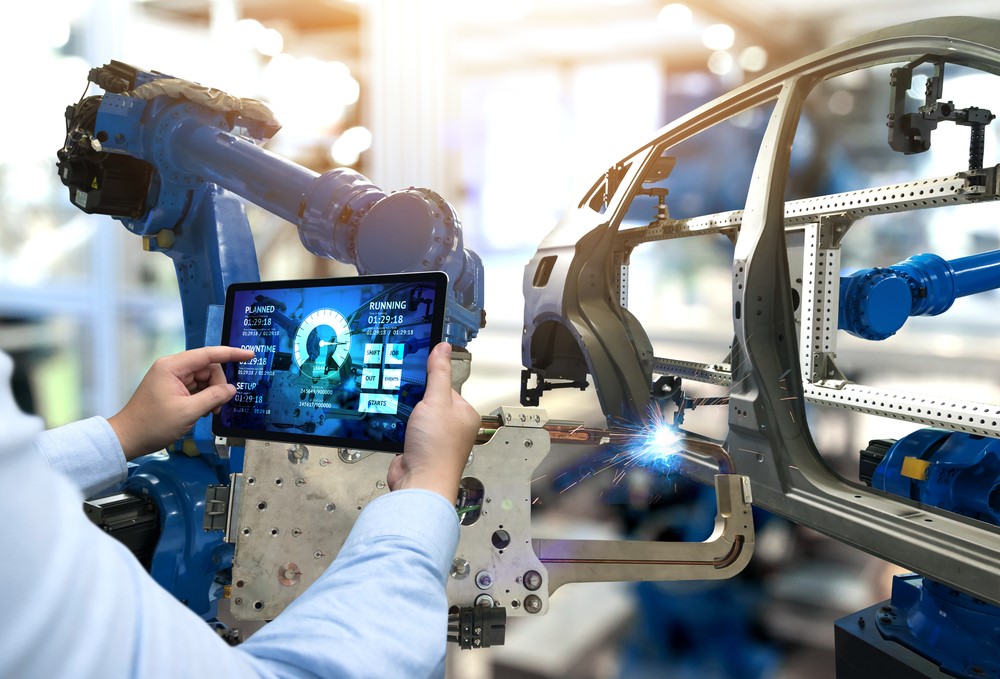5 Technologies That Have Forever Transformed the Auto Industry

Technology has completely transformed our world; solutions are simply a click away. Digital giants such as Amazon and Netflix are using technology to set standards for customer experience. This has caused auto companies to start providing user-friendly experiences and to create seamless online-offline journeys.
Back in 2020, the Covid-19 pandemic accelerated the adoption of technology even more. Digital technology trends keep improving auto processes, helping companies enhance automobile utility and customer satisfaction. Here are 5 trends transforming the automotive industry in 2021 and beyond.
1. Electric Vehicles
The amount of harm caused to the environment and the depletion rate of fossil fuel reserves by gas-powered cars have made electric vehicles (EVs) popular. Electrification of the drivetrain has made it possible to transition to emissions-free individual automobiles. By the end of 2025, BMW will have produced around 2 million fully electric vehicles.
However, auto manufacturers need to work on high EV prices, insufficient charging infrastructure, and renewable energy charging grids. Thankfully, companies such as Germany's ChargeX are providing a modular EV charging solution to transform parking spaces into convenient charging stations.
2. Autonomous Vehicles
The rapid advancements made in artificial intelligence and machine learning have made the development of autonomous vehicles a reality. Self-driving vehicles focus on decreasing human driver intervention and minimizing accidents caused by humans.
Since they require no human intervention even in complex traffic situations, AVs make driving safer. Their advanced technologies and AI-enhanced computer vision help them to spot obstacles along the way and avoid accidents.
Companies such as Intvo, a US-based startup, now provide pedestrian behavior indicating technology for AVs, reducing the risk of accidents and elevating autonomous vehicles’ safety levels.
3. Vehicle-to-Vehicle Communication
A quick visit to an auto showroom can help you understand the power of vehicle-to-vehicle (V2V) communication. Connected cars are connected to other cars and transport infrastructure like traffic lights. They also increase the connectivity of drivers and passengers to the outside world.
Connected vehicles can interact with other vehicles in a certain range and share relevant road information, potential road risks and collisions, traffic conditions, and the weather. This decreases traffic, vehicle accidents, and fatalities.
4. Smart Factory
The automobile industry has been using Robotic Process Automation to complete manufacturing processes such as spray-painting and brazing. The COVID-19 outbreak has prompted more auto companies to use Robotic Process Automation (RPA).
Widespread RPA use will result in smart factories that use automation and modelling to stabilize the manufacturing process and increase flexibility. This will enable manufacturers to produce cars in a fast, standardized, and error-free manner across the globe. Mercedes-Benz is already using virtual production tools and data analytics to optimize production environments.
5. Internet of Things (IoT)
IoT technology provides secure interactions between vehicles and infrastructure. It helps solve traffic congestion, improve road safety, and reduce pollution. IoT enables cars to understand their surroundings.
Data collected through IoT can be used to offer drivers value-added services through in-car apps. For example, KonnectShift’s IoT solutions help users increase, organize, and manage their fleet better. However, auto manufacturers need to conduct proper testing of IoT apps before deploying the software.
(Devdiscourse's journalists were not involved in the production of this article. The facts and opinions appearing in the article do not reflect the views of Devdiscourse and Devdiscourse does not claim any responsibility for the same.)










